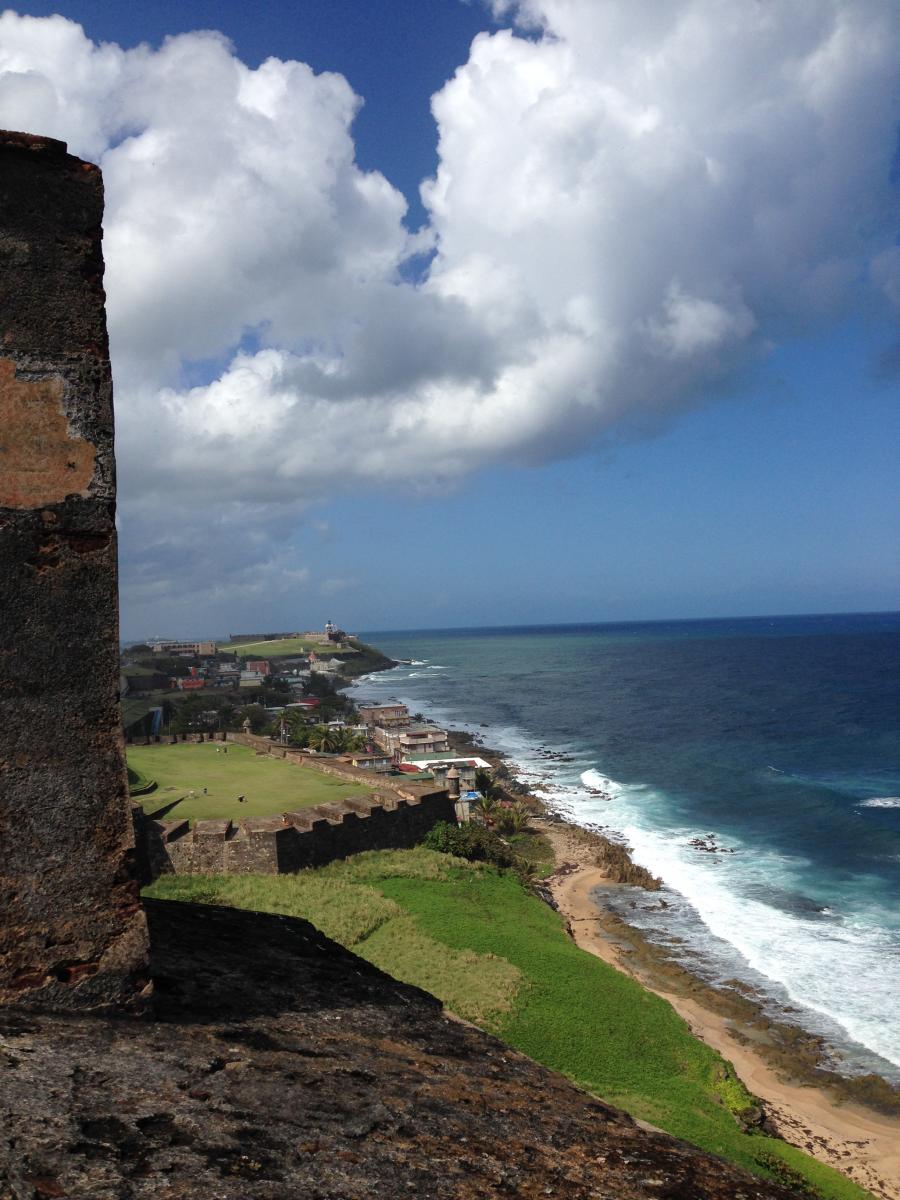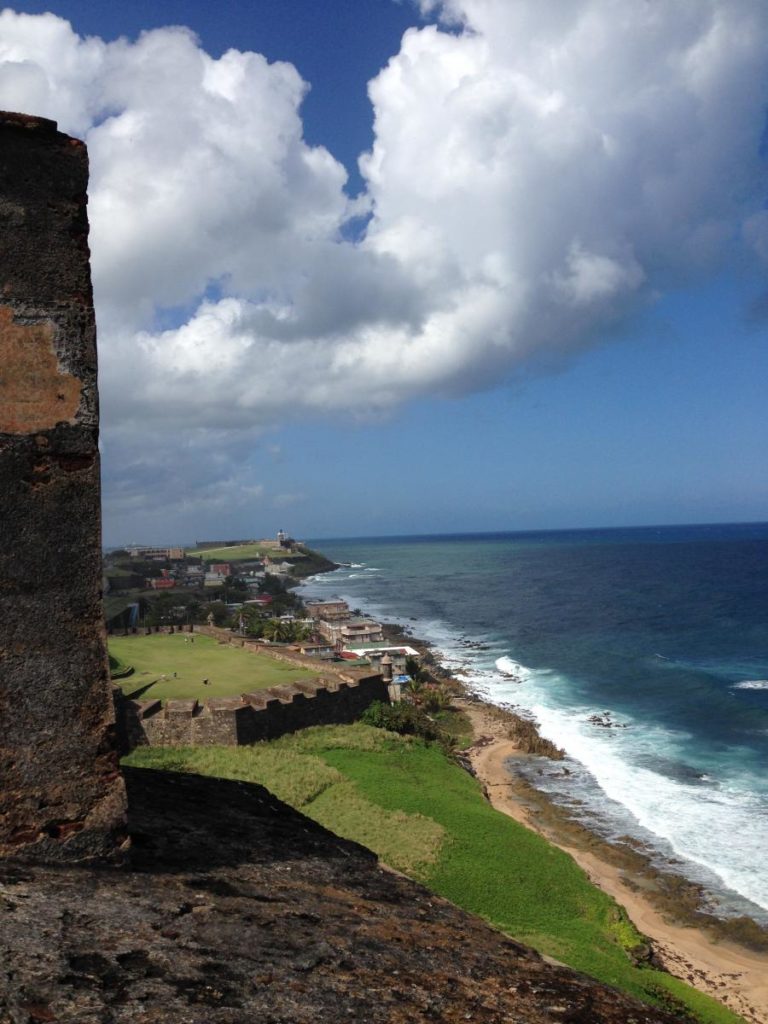
El Morro guards the northwestern tip of the old city, a headland with sparkling three-sixty views. Poised to fire cannons and guns against approaching sea invaders, the stone castle—six zigzagging levels, walls thick as hallways—was built by the Spanish starting in the early 1500s. El Morro protected Spain’s “porto rico,” the harbor crucial to any European empire seeking a foothold in the resource-rich Caribbean basin. But while El Morro protected San Juan from a seaside attack, the city’s eastern flank remained exposed to ambush by land, a weakness exploited by the British in 1598, then the Dutch in 1625. The Dutch succeeded in burning the city to the ground, but no one ever captured El Morro, whose now pleasant grassy lawn was, several times over, a bloody battlefield. After these near catastrophes, Spain began a second fort, Castillo San Cristóbal, at the city’s northeastern headland. Spain held Puerto Rico until the Spanish-American War, when the U.S. intervened in Cuba’s struggle for independence. During a few short, calamitous months in 1898, Spain lost to the U.S. its Pacific and Caribbean lands, including the Philippines, Puerto Rico, Guam, and, temporarily, a nominally independent Cuba. An empire of nearly four hundred years dissolved like cobwebs in rain.




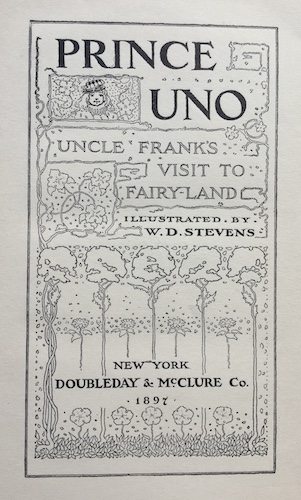

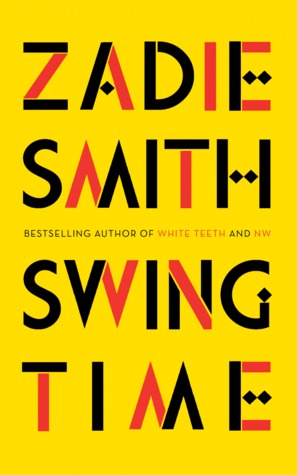
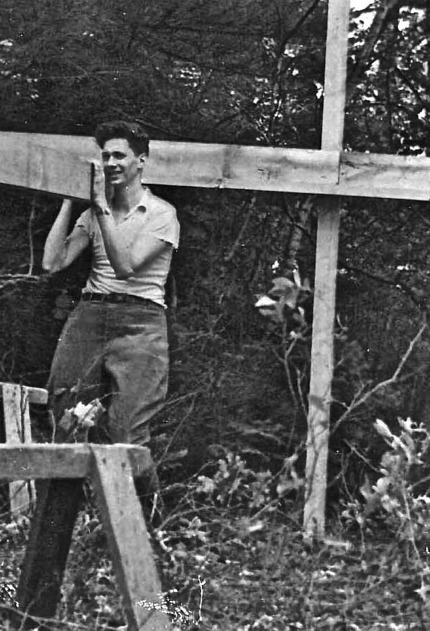
 Mostly, Les gossips and writes about girls. One’s “a real peach” and another “darn nice.” Poor Esther has legs like parentheses—she “must have been born with a barrel between her legs.” Then there’s Mildred, who’s darn good-looking but too biting: “Sarcastic is no word. That’s complimenting her.” Les gets a little revenge when he sees her at a dance with “an awful dopey looking hobo.” He has a good time, even though “nearly every girl there was a pot.”
Mostly, Les gossips and writes about girls. One’s “a real peach” and another “darn nice.” Poor Esther has legs like parentheses—she “must have been born with a barrel between her legs.” Then there’s Mildred, who’s darn good-looking but too biting: “Sarcastic is no word. That’s complimenting her.” Les gets a little revenge when he sees her at a dance with “an awful dopey looking hobo.” He has a good time, even though “nearly every girl there was a pot.”




